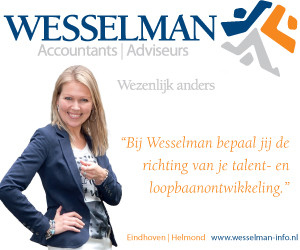After the great financial crash in 2008 there have been a handful of Hollywood-movies depicting the financial meltdown. These include Margin Call and The Wolf of Wall Street. The most recent movie about the financial crisis is the Big Short. Its dramaturgy is flawed, but the movie conveys a powerful message all the same.
After 2008 the urban myth arose that no one had seen the crash coming. Not so; Dutch economist Dirk Bezemer showed that there were in fact several academics who did see it coming. The Big Short fictionalizes the true story of people working in the financial sector who saw it coming as well. Several asset managers established in 2005 that there was a gigantic housing bubble, with the market price being higher than incomes could ultimately sustain. People were seduced to get a mortgage with teaser-rates that would be jacked up later on. The asset managers –played by among others Christian Bale and Ryan Gosling- further find much of the paper work supposedly documenting income and assets of home owners to be fraudulent.
In 2005-2008 investment banks were massively trading mortgage-backed-securities (MBS), the value of which was based on the assumption of ever rising house prices. So the asset managers decide to short the housing market by shorting the MBS that investment banks so voluminously trade. If they are right and house prices will indeed decrease, they will earn big time.
Much of the film revolves around the question whether the asset managers can pull it off. For as the saying has it: the market can stay irrational longer than you can stay solvent. The biggest problem for Christian Bale and the others is that investment banks demand margin calls whenever the price of MBS increases. And the price keeps increasing even when house prices, on which the MBS are based, begin to collapse. It becomes apparent that investment banks are manipulating prices.
Of course, the protagonists of the movie pull it off. And also in several other respects the Big Short is –like so many blockbusters- just a B-movie with a large marketing budget. The characters are flat. The scenes that are meant to give the movie psychological depth are unconvincing and redundant. There are no memorable scenes. This is all the more surprising as there are some great actors involved.
But this is not the last to be said of the the Big Short. The movie, particularly the last 30 minutes, does convey an interesting and powerful message. The story is complementary to the Wolf of Wall Street and Margin Call in more than respect. The Wolf of Wall Street depicts small swindlers, whereas Margin Call focuses on investment banks –who all went long in the housing market, manipulated prices and dumped their assets as the crash unfolded.
The Big Short shows that the real culprits are not hustlers or one rotten investment bank but the system as a whole. Goldman Sachs and J.P. Morgan created the bubble to profit from it, while supervisors were complicit. The movie ends with the well-known collapse of Lehman Brothers and with the rescue of Wall Street with tax payers’ money. The movie denounces this political heist of the financial-political complex in no uncertain terms.
The political backlash of it all is grimly professed in the movie by one of the main characters: “I have a feeling, in a few years people are going to be doing what they always do when the economy tanks. They will be blaming immigrants and poor people.” This is indeed what is happening. Or as Shakespeare wrote: what’s past is prologue.
















